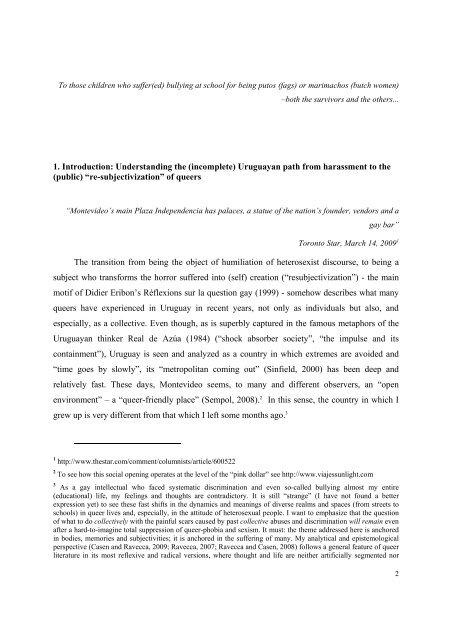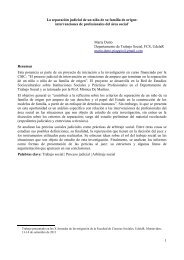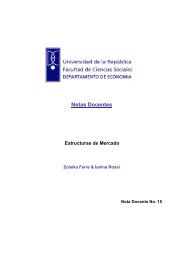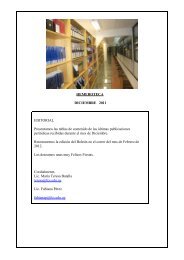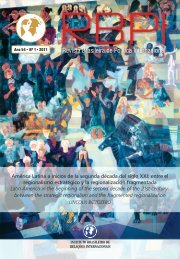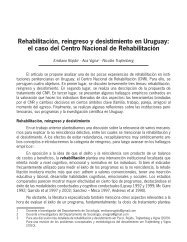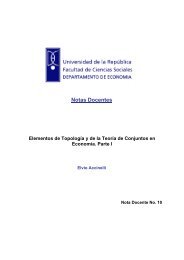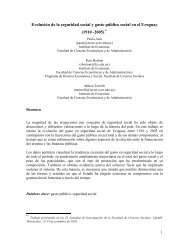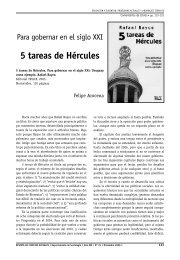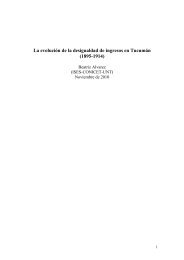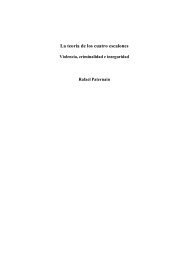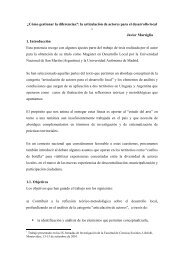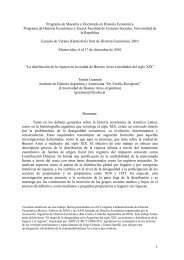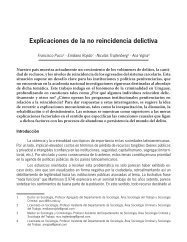Paulo Ravecca - Facultad de Ciencias Sociales
Paulo Ravecca - Facultad de Ciencias Sociales
Paulo Ravecca - Facultad de Ciencias Sociales
You also want an ePaper? Increase the reach of your titles
YUMPU automatically turns print PDFs into web optimized ePapers that Google loves.
To those children who suffer(ed) bullying at school for being putos (fags) or marimachos (butch women)<br />
–both the survivors and the others...<br />
1. Introduction: Un<strong>de</strong>rstanding the (incomplete) Uruguayan path from harassment to the<br />
(public) “re-subjectivization” of queers<br />
“Montevi<strong>de</strong>o’s main Plaza In<strong>de</strong>pen<strong>de</strong>ncia has palaces, a statue of the nation’s foun<strong>de</strong>r, vendors and a<br />
gay bar”<br />
Toronto Star, March 14, 2009 1<br />
The transition from being the object of humiliation of heterosexist discourse, to being a<br />
subject who transforms the horror suffered into (self) creation (“resubjectivization”) - the main<br />
motif of Didier Eribon’s Réflexions sur la question gay (1999) - somehow <strong>de</strong>scribes what many<br />
queers have experienced in Uruguay in recent years, not only as individuals but also, and<br />
especially, as a collective. Even though, as is superbly captured in the famous metaphors of the<br />
Uruguayan thinker Real <strong>de</strong> Azúa (1984) (“shock absorber society”, “the impulse and its<br />
containment”), Uruguay is seen and analyzed as a country in which extremes are avoi<strong>de</strong>d and<br />
“time goes by slowly”, its “metropolitan coming out” (Sinfield, 2000) has been <strong>de</strong>ep and<br />
relatively fast. These days, Montevi<strong>de</strong>o seems, to many and different observers, an “open<br />
environment” – a “queer-friendly place” (Sempol, 2008). 2 In this sense, the country in which I<br />
grew up is very different from that which I left some months ago. 3<br />
1 http://www.thestar.com/comment/columnists/article/600522<br />
2 To see how this social opening operates at the level of the “pink dollar” see http://www.viajessunlight.com<br />
3 As a gay intellectual who faced systematic discrimination and even so-called bullying almost my entire<br />
(educational) life, my feelings and thoughts are contradictory. It is still “strange” (I have not found a better<br />
expression yet) to see these fast shifts in the dynamics and meanings of diverse realms and spaces (from streets to<br />
schools) in queer lives and, especially, in the attitu<strong>de</strong> of heterosexual people. I want to emphasize that the question<br />
of what to do collectively with the painful scars caused by past collective abuses and discrimination will remain even<br />
after a hard-to-imagine total suppression of queer-phobia and sexism. It must: the theme addressed here is anchored<br />
in bodies, memories and subjectivities; it is anchored in the suffering of many. My analytical and epistemological<br />
perspective (Casen and <strong>Ravecca</strong>, 2009; <strong>Ravecca</strong>, 2007; <strong>Ravecca</strong> and Casen, 2008) follows a general feature of queer<br />
literature in its most reflexive and radical versions, where thought and life are neither artificially segmented nor<br />
2


